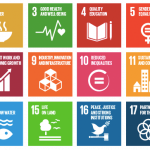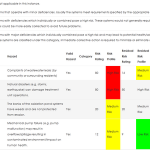Emanti invited to participate in WHO Global Water Safety Planning Trainer of Trainers Event
Philip de Souza from Emanti was invited by the World Health Organization (WHO) to participate in the Global Water Safety Planning (WSP) Trainer of Trainers Event held in Thika, Kenya from 23 – 27 January 2017. The training event was organized to both strengthen WSP trainer capacity and create a pool of qualified WSP trainers capable of delivering high-quality WSP training events aligned to WHO guidance, in various languages around the world.
The primary purpose of the workshop was to enhance the quality of global WSP training by: (1) demonstrating the adaption and use of the WHO prepared training materials, (2) seeking agreement among global trainers on core WSP principles and steps to ensure consistency of key messages during future training events, and (3) exchanging experiences and ideas on WSPs and WSP resources.
The workshop further strengthened Emanti’s knowledge and skills as WSP trainers. Selected Emanti workshop reflections include:
- The WHO materials are excellent and are of tremendous value. The exercises and examples presented are very clear and focussed.
- It was good to agonize over both theoretical and practical challenges faced in developing/implementing WSPs (e.g. “developed world/complex” perspective vs. “developing world/simpler” perspective) and the need to be conversant in/able to respond to both situations.
- The sharing of various trainer tips, tricks, techniques, ice-breakers/energizers, learning styles, and the importance of good time management was appreciated – “one is never too old to learn something new.”
- The workshop further enhanced understanding the fundamentals of integrating climate change related impacts/climate resilience into the WSP process.
Selected Emanti tips for trainers include:
- Trainers need to spend more time understanding the country/ies that participate in the training (i.e. upfront preparation), especially institutional arrangements/roles and responsibilities so that discussions can be more focused and relevant.
- Trainers must not rush through the “tail-end” of WSP or brush over “climate-change”, but give these aspects proper attention (improve integration/linkages).
- Discussing “Module 1: WSP team” at the end of the training (and not in the beginning) makes more sense (once participants know what is actually required for WSP, they know who should be part of the team).











